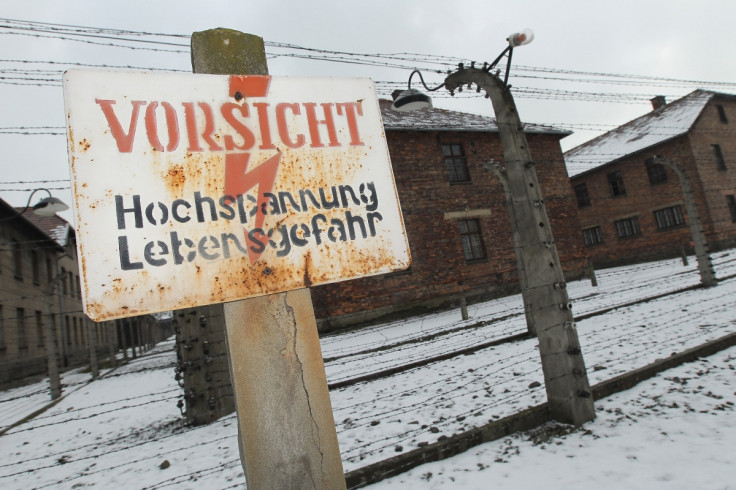Has the World Forgotten the Holocaust?

Late last week Spanish fashion giant Zara created another scandal related to the memory of the Holocaust. In 2007, the clothing retail chain shocked many people all over the world by offering handbags with swastikas for sale, which were only removed after a public outcry that generated considerable negative publicity.
This time, the outrageous items being peddled were T-shirts that resembled the uniforms worn by inmates in Nazi concentration camps. They were adorned by a yellow star, reminiscent of the one which the Nazis forced Jews to wear as an identifying symbol when singling them out for discrimination and ultimately murder.
The good news is that in this case as well, Zara quickly removed the item from sale, but once again it took many protests and no small measure of public outrage, especially but not only in Israel, to achieve that result.
And the question that arises in this context is, what on earth were Zara's designers thinking when they came up with such a design?
The official response was that it was all about "old classic Western movies," and that the yellow star had the word "sheriff" written on it, but in fact, that word was virtually illegible on the photos offering the item, which naturally evoked the most terrible associations for so many potential customers visiting the Zara website.
So was it ignorance? Is the average Spanish fashion designer, or whoever designed the latest scandalous item offered by Zara, totally ignorant about the history of World War II, and especially the Holocaust?
Is the Holocaust being forgotten after several decades in which there has been renewed interest and a plethora of books, plays, movies and a wealth of information available on the internet?

Frankly, I don't think so. If anything the opposite is true. There is more information and discussion of Holocaust issues than ever before.
There is also far more Holocaust education than ever before, thanks to the 2005 UN resolution marking 27 January as an international memorial day for the victims of the Shoa, and the establishment of the International Holocaust Remembrance Alliance (IHRA), an inter-governmental organization established in 1998 to "mobilise, and coordinate political and social leaders' support for Holocaust education, remembrance, and research at national and international levels."
The IHRA, which was founded by Swedish Prime Minister Goran Persson in 1998, and initially had only Sweden, Germany and Israel as members, now boasts a roster of 31 countries from four continents with full membership and four additional ones with the status of observer states, and has been doing impressive work in increasing Holocaust education and promoting Shoa commemoration and research.
The problem, in my opinion, is not the lack of available information about the Holocaust, although obviously much remains to be done, especially in the Arab and Moslem world where there is abundant government-sponsored Holocaust denial, not to mention abysmal ignorance of the historical facts, but rather the failure to draw the necessary lessons from that tragic period.
How else is one to explain the contemporary frightening rise of anti-Semitism, particularly on the continent where the Holocaust took place and where the mantra of "Never Again," is endlessly repeated.
If demonstrators can yell "Jews to the gas" with impunity on the main avenues of European capitals, then something is terribly wrong.
If Jews are physically attacked in European cities because Israel refuses to allow its citizens to be murdered by Islamic terrorists who seek to destroy a member state of the United Nations, simply because it was established in the historic Jewish homeland, then obviously the lessons of the tragedy of European Jewry have not been internalised.
Today, on the 75th anniversary of the Nazi invasion of Poland, it is time to take a hard look at contemporary anti-Semitism and its root causes, and to remember that all the mass fundamentalist movements that singled out the Jews for discrimination, oppression, and eventually murder, whether they be Nazi, Communist, or Islamic, ultimately took the lives of millions of innocents, most of whom had no genetic or religious connection to their Jewish neighbours.
Dr. Efraim Zuroff is the chief Nazi-hunter of the Simon Wiesenthal Center and the director of its Israel Office. His most recent book Operation Last Chance; One Man's Quest to Bring Nazi Criminals to Justice (Palgrave/Macmillan) chronicles the worldwide efforts to bring Nazi war criminals to justice over the past more than three decades.
The Center's special website for this issue is: www.operationlastchance.org and one can follow Dr. Zuroff on Facebook and Twitter (@EZuroff). Information on the worldwide activities of the Simon Wiesenthal Center can be viewed at www.wiesenthal.com.
© Copyright IBTimes 2024. All rights reserved.





